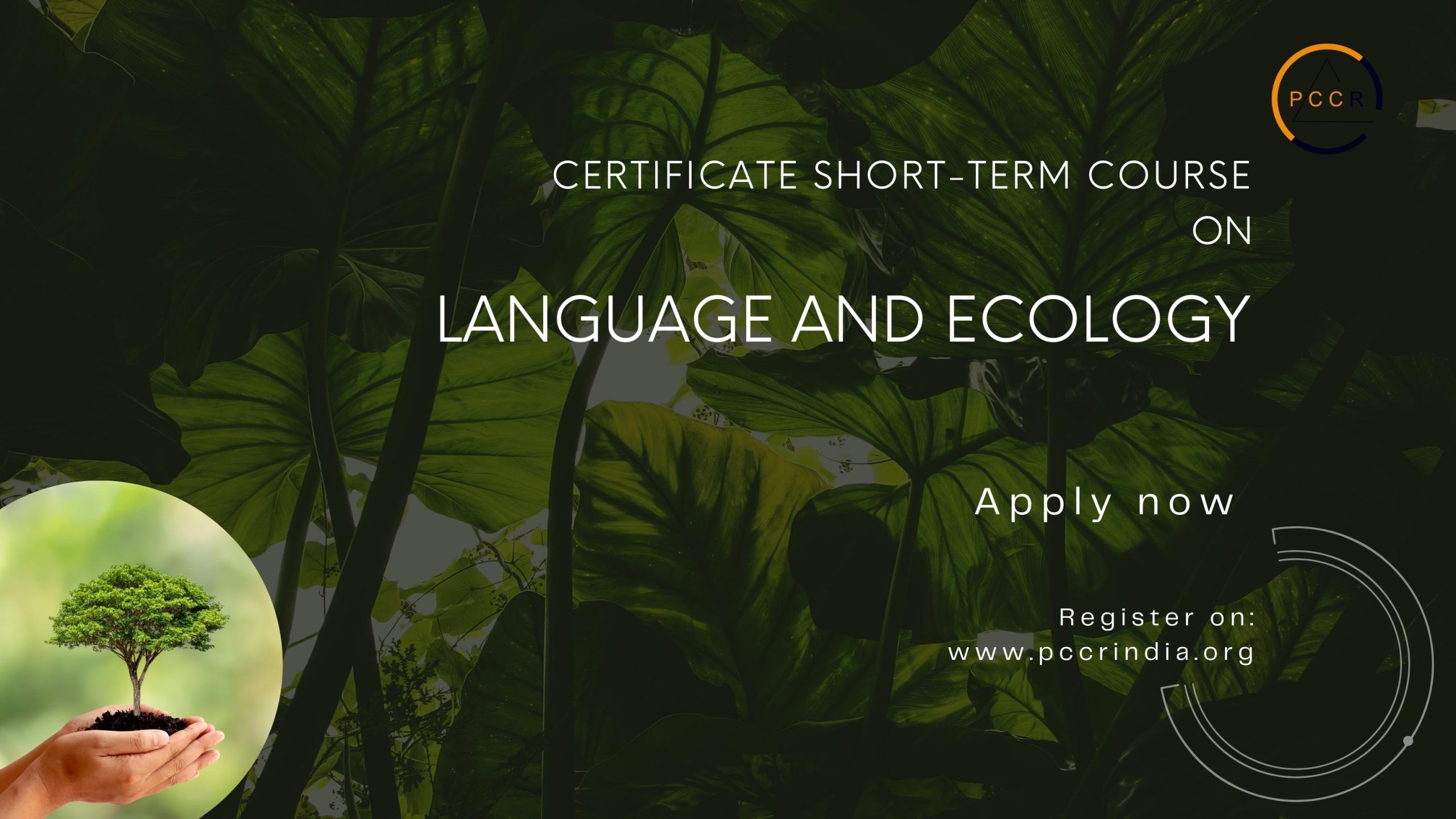
45 hours
Online
The present course attempts to map language – lexicon and grammar – with its immediate environment. How they are interrelated and how they affect each other will be our primary concern in the course. We will be dealing with examples of languages across the world and see how these languages differ in constructing the verbal image of the world that we see. It will make clear that the perception of the world that we have is non-neutral and colored by our language structure. The ecological problems are embedded in this perception of language. In this course, we will try to understand the inherently biased nature of languages and what we can do to develop a neutral perspective.
At the end of the course, the student should be able to:
Crystal, David. Language Death. New Delhi: CUP.
Devy, G. N. ‘Language and Reality’ in Singh, U. N., Itagi, N. H. & Singh, Shailendra Kumar [Eds.] Language, Society and Culture. Mysore: CIIL & Mahatma Gandhi International Hindi University.
Dias, Patrick V. [Ed.] 2004. Multiple Languages, Literacies and Technologies. Mumbai: BFC.
Fill, Alwin & Muhlhausler, Peter. [Eds.] 2001. The Ecolinguistics Reader: Language, Ecology and Environment. London & NY: Continuum.
Khubchandani, L. M. Indigenous Peoples: Responding to Human Ecology. Mysore: CIIL & Bhasha.
Mair, Christian. [Ed.] 2003. The Politics of English as a World Language: New Horizons in Cultural Studies. NY: Rodopi.
Nettle, Daniel & Romaine, Suzanne. Vanishing Voices: The Extinction of World’s Languages. Oxford: OUP.
Phillipson, Robert. Linguistic Imperialism. Oxford: OUP.
Phillipson, Robert. Linguistic Imperialism Continued. Hyderabad: Orient BlabkSwan.
Skutnabb-Kangas, Tove. Bilingualism or Not: The Education of Minorities. Delhi: Orient Longman.
Investment
to secure your future
1 Fee sturcture
Students/Professionals: Rs. 4,700/-